Spiritual and Physical Effects of Masturbation in Light of Islamic Teachings
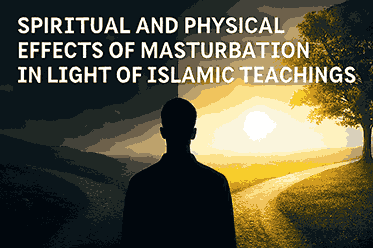
Introduction
Islam is a complete way of life that provides guidance on all aspects of human conduct, including sexual behavior. Sexual desires are natural, but they must be fulfilled through lawful means, such as marriage, to maintain personal dignity and societal harmony. Among youth, one commonly discussed issue is masturbation (istimna’), which is often viewed as a private act but carries significant implications both spiritually and physically. Understanding its effects in the light of Islamic teachings can help Muslims adopt healthier and spiritually rewarding lifestyles.
Islamic Perspective on Masturbation
Islam encourages modesty (Haya) and self-control, and directs believers to avoid actions that lead to sin or spiritual weakness. Most classical Islamic scholars from the major schools of thought (Hanafi, Maliki, Shafi’i, and Hanbali) have generally discouraged or prohibited masturbation, except under extreme necessity where it may prevent greater sin like zina (fornication or adultery).
Key Qur’anic reference:
“And those who guard their private parts, except from their wives or those their right hands possess… but whoever seeks beyond that, then they are the transgressors.”
— Qur’an 23:5–7
This verse is interpreted to mean that seeking sexual pleasure outside lawful relationships is not allowed.
Key Hadith:
Muhammad ﷺ said:
“O young men, whoever among you can afford to marry, let him marry; and whoever cannot, let him fast, for fasting will diminish his desire.”
— Sahih al-Bukhari, Sahih Muslim
Rather than engaging in self-pleasure, Islam encourages controlling desires through spiritual acts like fasting and prayer until lawful means become available.
Spiritual Effects of Masturbation
-
Weakening of Iman (Faith):
Engaging in acts that are doubtful or prohibited leads to guilt and spiritual decline. Persistent guilt can distance one from worship and reduce khushu’ (concentration) in Salah. -
Loss of Haya (Modesty):
Masturbation often involves viewing inappropriate content, which erodes modesty, desensitizes the heart, and normalizes immodest behavior. -
Decreased Motivation for Worship:
Excessive indulgence in worldly pleasures dulls the desire for acts of worship, Qur’an recitation, and dhikr (remembrance of Allah). -
Spiritual Isolation:
People who engage in it excessively may begin to avoid religious gatherings out of shame, which cuts them off from spiritual support and guidance.
Physical Effects of Masturbation
While occasional masturbation is not generally considered physically harmful by modern medicine, excessive and compulsive masturbation can have negative physical outcomes, including:
-
Fatigue and Energy Drain:
Overindulgence can cause fatigue, lethargy, and reduced stamina, which affect studies, work, and daily productivity. -
Desensitization:
It may decrease sensitivity and lead to difficulty in achieving satisfaction in marital relations later on. -
Sleep and Mood Disturbances:
Compulsive behavior can disrupt sleep cycles and contribute to stress, anxiety, or feelings of depression. -
Addictive Behavior:
Like other compulsive habits, it can become addictive, making self-control increasingly difficult and impacting mental well-being.
Islamic Guidance to Overcome the Habit
Islam offers practical and spiritual steps to control this behavior:
-
Regular Salah (Prayer): Establishing the five daily prayers builds discipline and spiritual strength.
-
Fasting: Fasting reduces sexual urges and increases self-control.
-
Avoiding Triggers: Staying away from explicit content, inappropriate social media use, or isolation.
-
Staying Busy in Halal Activities: Sports, study, volunteering, and social interaction help divert energy productively.
-
Seeking Marriage: For those able, marriage is the best halal solution to fulfill natural desires.
-
Repentance (Tawbah): Asking Allah for forgiveness and making sincere efforts to change.
Conclusion
Masturbation may appear to be a private act with no consequences, but from an Islamic perspective, it can harm both spiritual well-being and physical health when practiced habitually. Islam emphasizes self-restraint, modesty, and seeking lawful means to satisfy natural desires. By strengthening one’s connection with Allah through prayer, fasting, and righteous companionship, youth can overcome this challenge and preserve their spiritual and physical health.
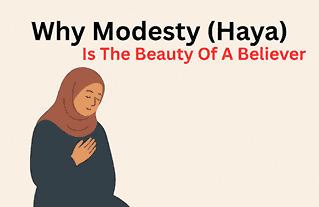

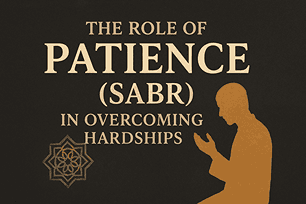


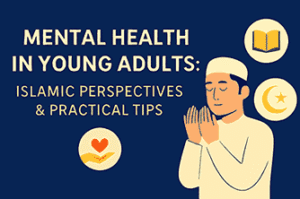

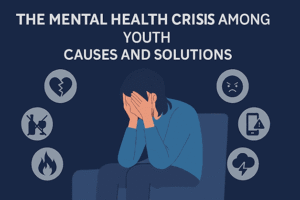





Post Comment